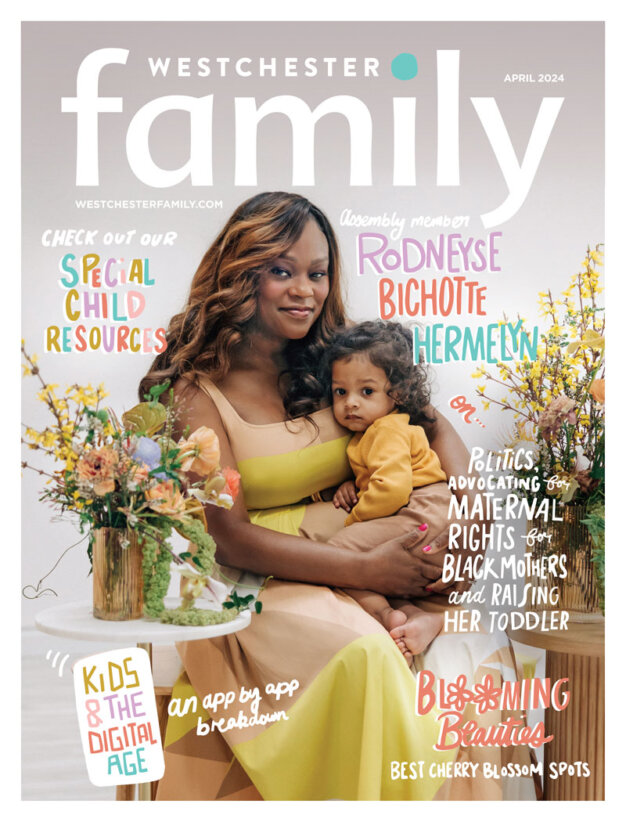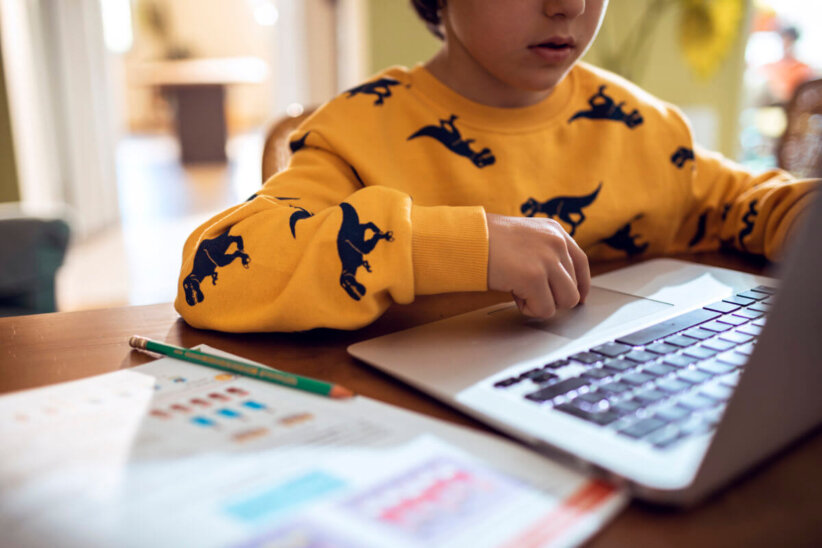Remember the days when families held simple birthday parties in their home? Hot dogs and cake were served, kids played pin-the-tail-on-the-donkey and guests went home with a small toy probably worth no more than a dollar. Times sure have changed! These days it seems like some birthday parties are a bit over the top – celebrations at country clubs complete with fancy lunch buffets, DJs, Disney or Marvel characters dressed up to entertain the kids, and expensive favors that cost more than most of the gifts the birthday girl or boy receive.
With these types of parties becoming more commonplace, children are growing accustomed to them and unable to appreciate how special they actually are. This has also gone hand-in-hand with kids these days not having the best manners. While we do not expect to flash back to the 1950s and have our children address adults as Madam or Sir, it is important for children to say please, thank you, excuse me and to behave properly at a friend’s birthday party.
Sure, it takes quite a bit of training (and sometimes nagging as well) from the time they speak their first word, but having good manners will help them be happier, kinder, more successful people throughout their lives.
Reasons for the Bad Manners Trend
A 2016 survey by the Associated Press-NORC Center for Public Affairs found that 74 percent of Americans think manners and behavior have deteriorated in the United States over the past several decades. Interestingly, clear differences between what older Americans and younger Americans consider rude behavior were revealed in the study. For example, almost half of Americans ages 18 to 29 think it perfectly acceptable to use cell phones in restaurants, while only 22 percent of those over age 60 agree. This discrepancy indicates a clear trend in how manners and rudeness have changed over generations.
Experts blame technology and busy parents for this trend. When both parents work long hours and children are raised by other caregivers such as nannies and daycare or afterschool staff, they do not receive the same guidance and skills to help them form good manners. It also seems to be widely accepted that teachers do not need to be responsible for giving lessons about manners. That means it’s up to parents to instill these values with the limited time they have with their children. Also, many parents feel guilty about the time they spend at work, so they try to act like their children’s best friend instead of their disciplinarian.
Second, technology gets blamed a lot for kids’ lack of politeness. According to Alex J. Packer, Ph.D., author of the book How Rude! The Teen Guide to Good Manners, Proper Behavior, and Not Grossing People Out, today’s electronic devices and social media lead to a culture of rudeness. Communicating in brief snippets with texts and tweets distorts the intended meaning of words and can cause bad manners. Spending so much time on devices also pulls kids away from personal interaction with adults and their peers. This means they are not practicing how to speak to others kindly. Finally, when kids communicate through electronics, they have more freedom to be rude since they can be anonymous and removed from the situation.
Why Good Manners Are Important
If it’s becoming widely accepted that manners no longer matter, then why should we care whether our kids have good manners at all? Just because everyone’s doing it, doesn’t mean we should follow the downward trend. Good manners are still critical to a child’s successful growth and their ability to build positive relationships throughout their lives.
At the core, good manners reflect respect for our self and others. When we say please and thank you we are taking the time to make someone else feel appreciated. Additionally, Dr. Pier Massimo Forni, professor and co-founder of the Civility Project at Johns Hopkins and author of Choosing Civility: The 25 Rules of Considerate Conduct, explains that it is crucial for children to learn to connect civility with strength and determination. This is achieved through character development in the home, and these positive traits can be applied to other situations in their lives. Our children depend on us to show them how to be trustworthy, considerate and kind to others so that they can take these skills with them throughout school, the workplace and in their relationships.
How To Teach Children Good Party Manners
It’s never too early to teach your children good manners, and birthday parties are an excellent training ground. One etiquette expert suggests teaching kids the basics of good manners by the time they reach 8 or 9 years old when they completely understand what respect means.
Some of the main concepts to teach your children include:
Interpersonal connection. Give them the skills to be able to communicate and connect with others at the party, including:
•Do not interrupt others while they are talking.
•Speak in complete sentences instead of one-word answers.
•Give full attention to someone talking to them, which includes looking them in the eye.
•Smile to appear inviting and interested in what others have to say.
•Keep their hands to themselves.
Using nice words. Teach them how to say “please” when they ask for something and “thank you” when they receive something. It is also important that they learn to say “sorry” and “excuse me” when appropriate. Finally, make sure they say “goodbye” and “thank you” at the end of a party.
Proper behavior. Children need to learn proper behavior at parties. Some gracious guest behavior includes:
•Follow the directions of adults at the party.
•Be ready to join in the planned activities.
•Do not push or shove others.
•Be careful and respectful at the venue, such as not running around, throwing objects, or jumping on furniture.
•Do not grab food, toys, or other items from other guests without asking nicely first.
•Respect that it’s the birthday child’s special day and they are being celebrated.
•Put away electronics such as phones and iPads.
Mealtime etiquette. Work with your children to develop appropriate behavior when eating at a birthday party, such as:
•Sit still and in the chair properly.
•Use utensils and a napkin.
•Take small bites.
•Chew with mouth closed.
•Don’t talk with mouth full.
•Keep elbows off the table.
•Don’t pick food out of teeth in public.
Good sportsmanship. Teach your children to lose gracefully and to always thank their opponent at the end of a game. By focusing on the positive aspects of sports and games such as taking turns, learning new skills, playing as a team and reaching their goals, there will be fewer bad manners when they lose.
Model good manners. Our children are watching us, so it’s critical that we exemplify good manners before and during birthday parties as well.
•Respond to invitations in a timely fashion.
•If you commit to a party but another invitation arrives at a conflicting time, stick to your original commitment even if your child wants to attend the second party. Of course, if the timing works out so you can attend both, that is fine, too.
•Always thank the host and remind your children to do the same as you leave the party.
•Always bring a gift to a child’s birthday party.
•Do not bring an extra child if they are not invited unless you ask the host beforehand and have no other option.
•Be mindful of when you arrive at the party. If you will be late due to a prior commitment or emergency, let the host know.
•Do not drop your child off and leave unless you have confirmed it is a drop-off party.
•Stay off your phone!
Sandi Schwartz is a freelance writer/blogger and mother of two. She has written extensively about parenting, wellness and environmental issues. You can find her at happy
Fun Tips
You can also use some fun, creative ways to instill good manners in your children.
•Ask them to write real thank you notes (handwritten on paper that will get mailed) after they receive gifts.
•Create a charades-like game by teaching them signals when they need to use better manners, such as tapping the corner of your mouth when they should to use a napkin or putting your pointer finger up to your lips when they need to stop talking and give someone else a turn.
•Make a good manners collage by cutting out words and images that can be hung up as a reminder.
•When they are watching their favorite movies and television shows ask them to point out when the characters are using both good and bad manners.
Books About Good Manners
•Excuse Me: A Little Book of Manners by Karen Katz (Grosset & Dunlap, 2002)
•Manners by Aliki (Greenwillow, 1997)
•Manners Time by Elizabeth Verdick (Free Spirit, 2009)
•May I Please Have a Cookie? by Jennifer Morris (Cartwheel, 2005)
•A Mermaid Tea Party (Kindness and Manners) by Sally Huss (Huss, 2015)
•My Mouth Is a Volcano! by Julia Cook (National Center for Youth Issues, 2006)
•Penguin Says “Please” by Michael Dahl (Picture Window, 2011)
•Richard Scarry’s Please and Thank You Book by Richard Scarry (Random House, 1973)
•The Thank You Book (An Elephant and Piggie Book) by Mo Willems (Hyperion, 2016)








